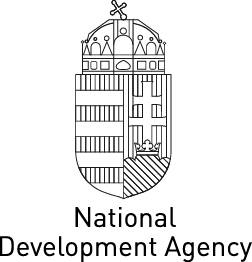Digital Hungary Spring 8 May 2008
 National Development Agency promotes e-Inclusion. Non-profit organisations and friends for digital social equal opportunity.
National Development Agency promotes e-Inclusion. Non-profit organisations and friends for digital social equal opportunity.
At the press conference held on 8 May, Dr Ákos Bálint, Head of the Managing Authority of Public Administration Reform Programmes, said that the programmes of the New Hungary Development Plan contribute a total of 450 billion HUF over the course of the 2007-2011 period for strengthening the information society in Hungary and implementing the „e-Inclusion” programme aimed at reducing the digital abyss.
Public administration development supports creating electronic access to the majority of public services, which in turn gradually leads to eliminating queues at public administration offices, by ensuring the opportunity to arrange official matters via the word wide web. Creating e-commerce surfaces in the area of economic development, as well as calls for applications supporting the development of broadband infrastructure encourages the Internet presence of enterprises. Curriculum development, as well as the development of the educational infrastructure and launching training programmes ensures the opportunity for social renewal. Modernisation of the healthcare infrastructure, as well as the infrastructure facilitating labour market integration and social inclusion equally constitutes an integral part of the programme targeting the strengthening of information society.
Hungarian non-profit organisations were the first to respond to the invitation of the European Union calling for the propagation of the ideal of inclusive information society (e-inclusion), within the framework of which these organisations are fighting for the integration of people left out of Hungarian information society (middle-age and old people, persons with physical impairments, minorities and poor people), as well as people living disadvantaged regions in information society, in order for these segments of the population to benefit from the advantages offered by the world wide web. The objective is for at least one million new users to have Internet access by 2010, most of which belong to the disadvantaged segments of the population.
Several non-profit organisations, as well as companies and public organisations are preparing for the events to be held from 17 May through to 25 May, in order to demonstrate e-Inclusion in practice, in connection with which the following programmes have been organised:
• First party for 50+ Internet users - 17 May, Budapest Millennium Park, Theatre, 7 p.m.-midnight (Inforum)
• Press club – 21 May. What can the media do to get old people to use IT? Alexandra Book House, Károly krt. 3c. (Inforum)
• Internet boat, 22 May (Budapest – Százhalombatta – Budapest, eWorld Ltd.)
• International Telecottage Conference – 22-25 May 2008 (European Union of Telecottage Associations, Global Telecentre Alliance -GTA)
• Close of the Roma WiFi Village programme, handing over 150 minority access points (Internet Dissemination Foundation)
• Grand-child-grandparent IT competition - 25 May (Inforum).
• The free online "Inclusive information society" newsletter launched in May and issued by the Information Society Research Institute (ITTK) collects and presents an overview of major events held in Hungary and Europe in connection with the Year of E-Inclusion.

